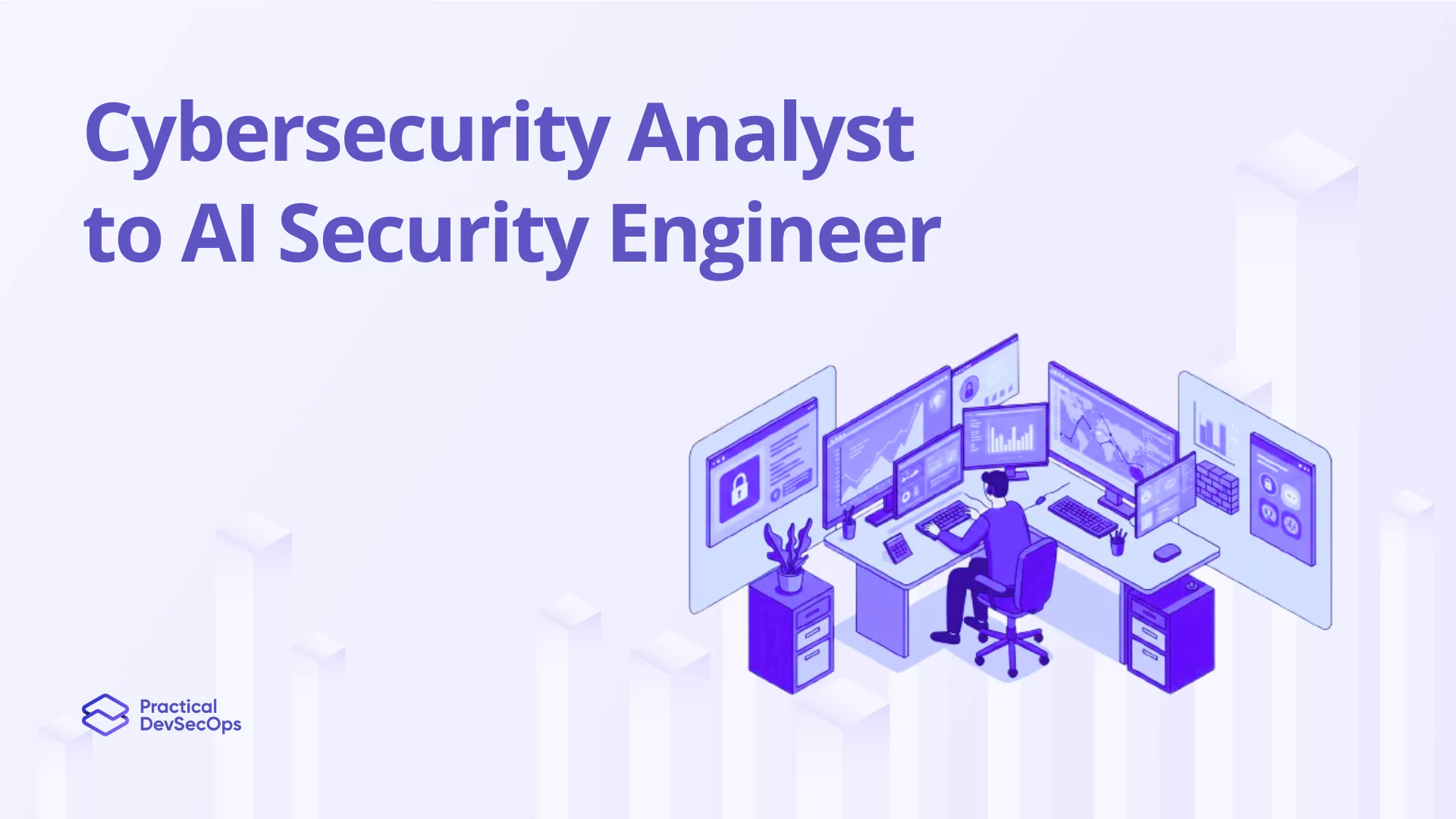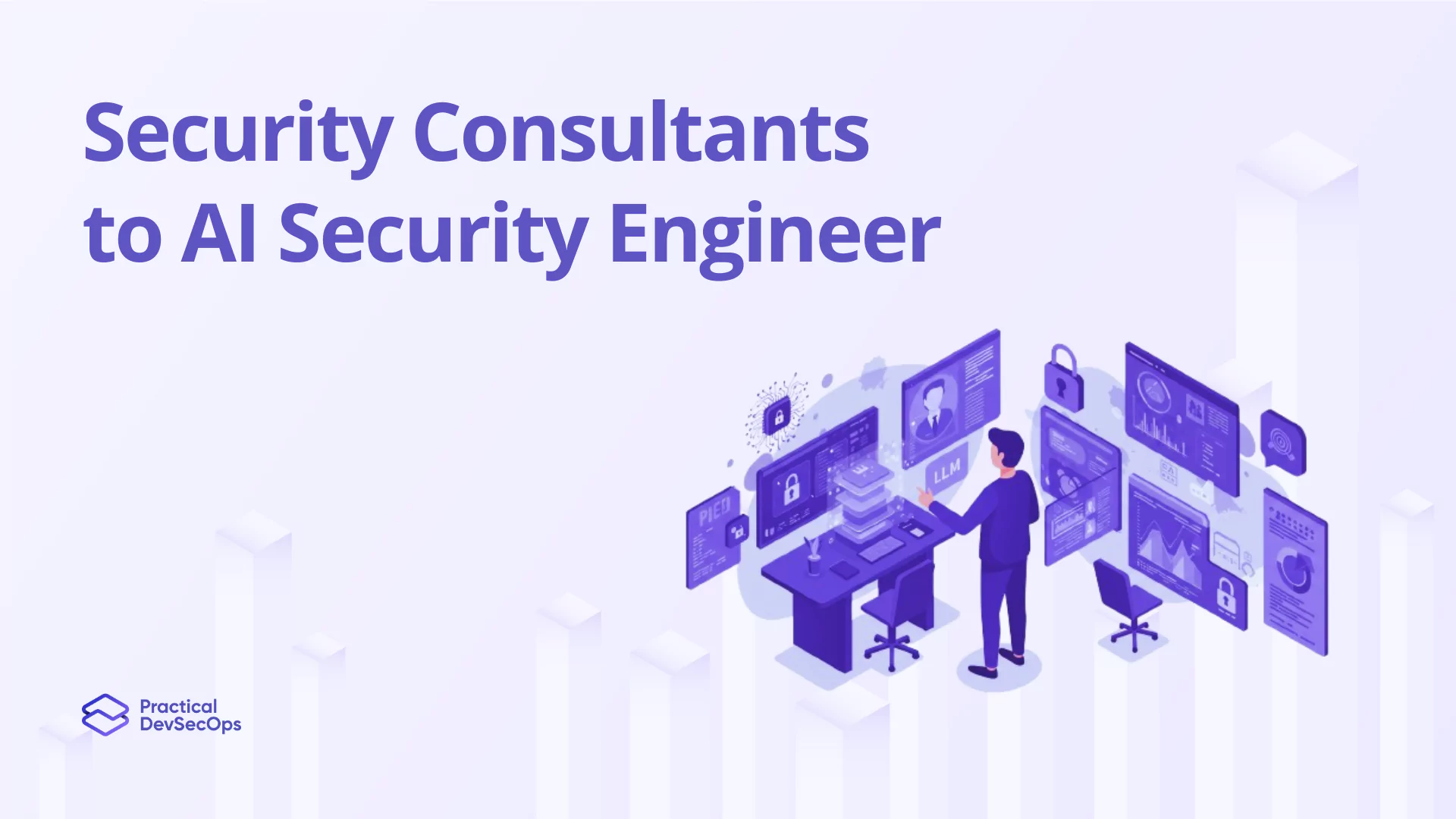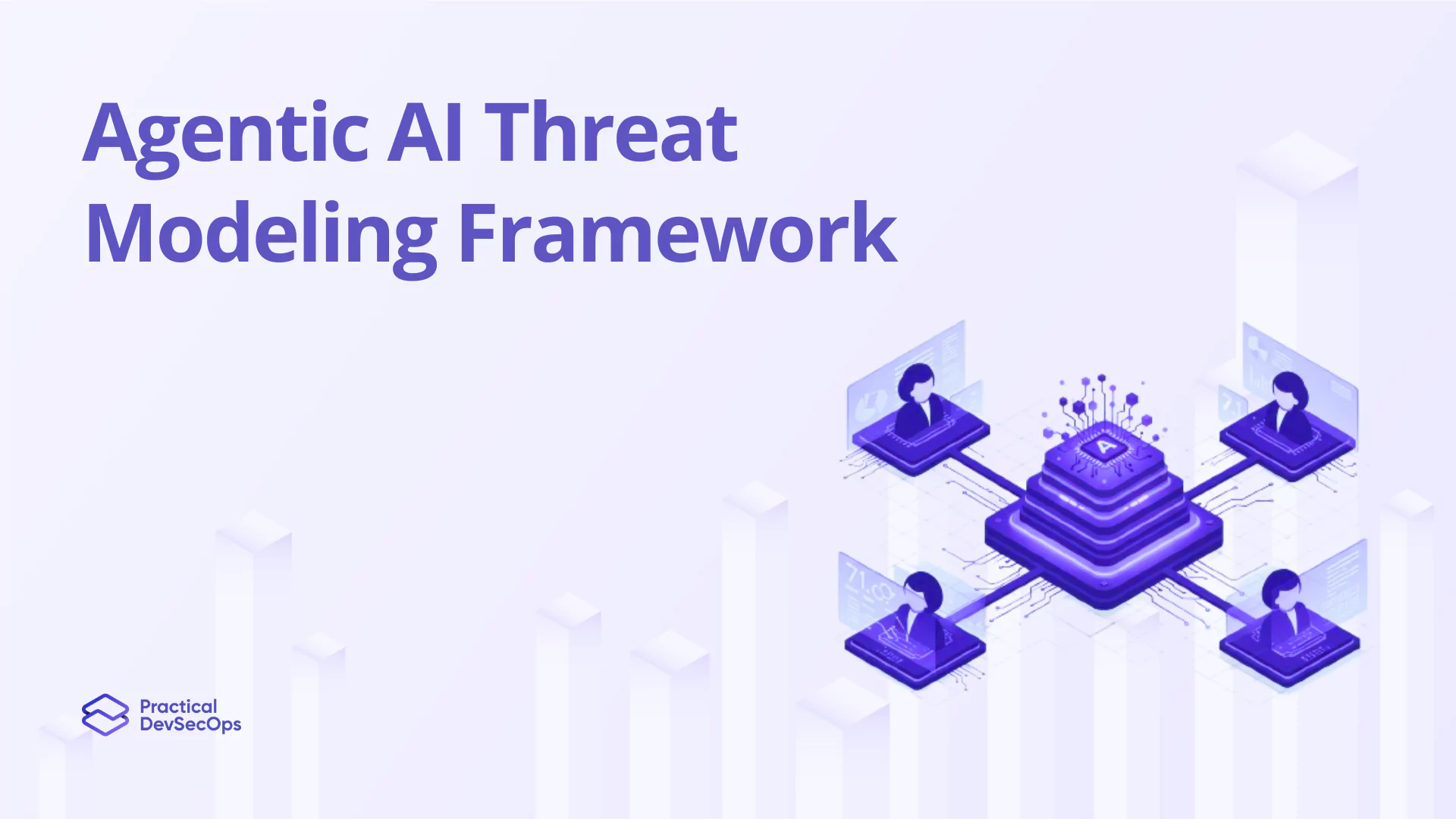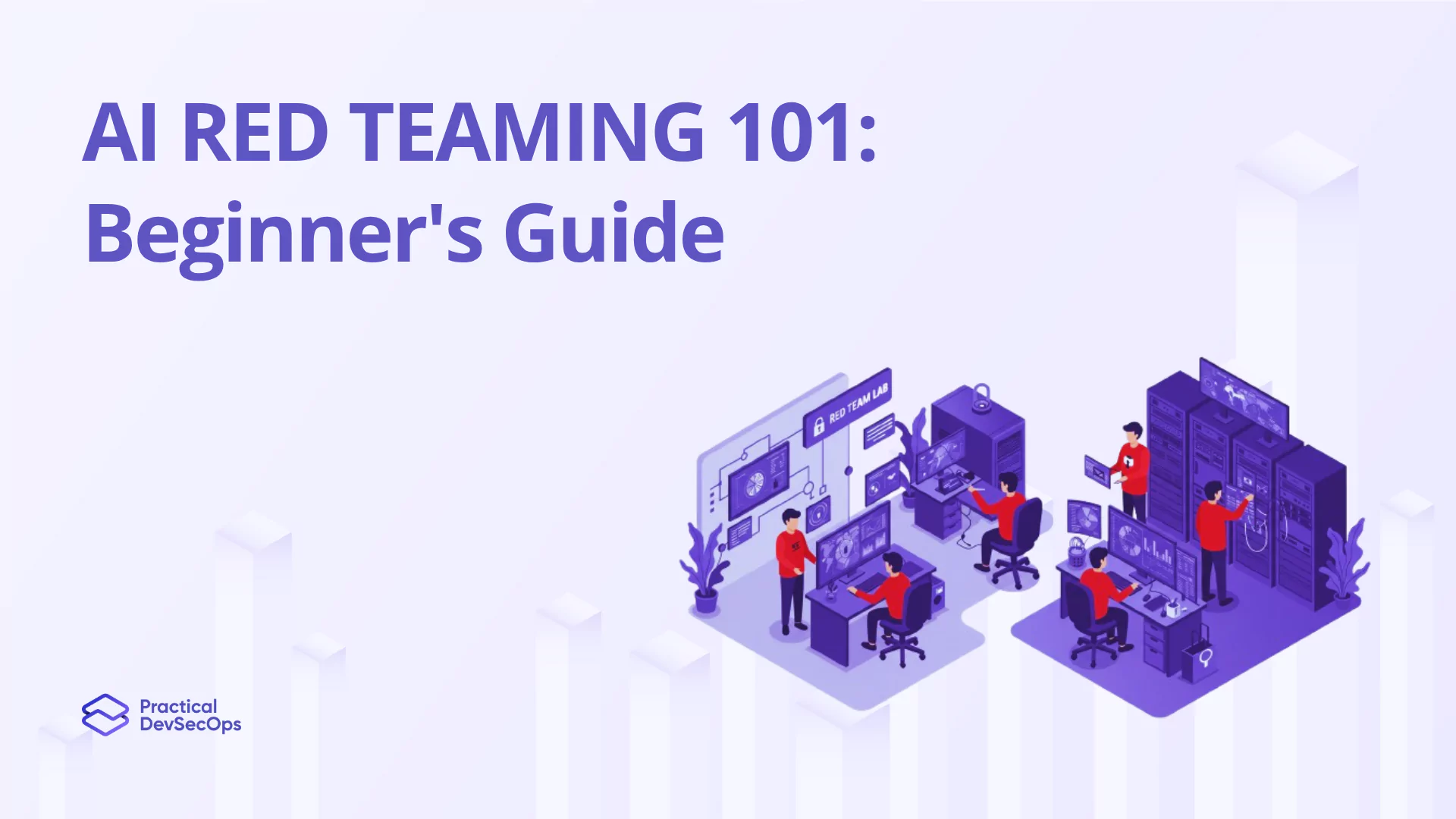The advancement of artificial intelligence is clearly advancing cybersecurity faster than it has ever done before. In turn, as AI-based attacks proliferate, the demands for AI security engineer skills are rising faster than ever, and there simply are not enough qualified people to fill those much-needed roles, creating a tremendous opportunity for cybersecurity analysts to advance their careers.
If you are a cybersecurity analyst considering such an important career change, this guide provides you with a purposeful and actionable road map to help you transition to an AI Security Engineer in 2025. The guide covers various topics, such as new skills needed and specific action steps, so that you have everything you require to succeed in this field, which is very necessary and in high demand.
Also read about Building a Career in AI Security
Why AI Security Engineering Is the Future of Cybersecurity?
AI security engineers are in high demand, and global demand for cybersecurity experts is growing, with an estimated 4.8 million unfilled cybersecurity positions worldwide. There is also a need for, and shortage of, experts who have knowledge in both AI and cybersecurity, because as organizations need to hire AI Security Engineers, Threat Intelligence Analysts, and Cloud Security Engineers, AI is expected to help protect organizations.
This is because AI can increase automation, accelerate detection and response, and anticipate threats. It also creates new attack vectors, such as attacks on models and training data; therefore, the field of AI security engineering has become critical. Organizations need to hire experts who can protect AI systems and defend against advanced AI attacks that traditional security solutions cannot detect; thus, they are looking for skilled professionals in this area.
Also read about How to prepare for AI Security Certification?
What does a Cybersecurity Analyst have to know about what an AI security engineer does?
An AI security engineer is a major shift from traditional cybersecurity roles. Cybersecurity analysts are focused on monitoring, detecting, and responding to threats in existing systems, while AI security engineers traverse the worlds of artificial intelligence, robotics, and cybersecurity, seeking solution sets for risks that did not exist before.
Core Responsibilities of AI Security Engineers:
AI security engineers work to secure the AI systems themselves, instead of just using AI in the role of a security tool or assurance tool. AI security engineers will secure machine learning models from the development to deployment phases, conduct vulnerability assessments against AI models to search for vulnerabilities, and create defenses to prevent attacks on AI systems, unlike traditional cybersecurity analysts who monitor the network and system logs for anomalies and vulnerabilities.
In addition, the responsibilities of AI security engineers in AI security will include protecting and defending AI systems against adversarial inputs that intend to mislead the AI systems.
New Threat Categories:
AI security engineers face challenges not encountered by other cybersecurity professionals,
and adversarial attacks make small adjustments to inputs to trick a model into making a wrong decision. Poisoning attacks inject bad data into a model’s training set to corrupt the model training process, because they must also be concerned with model inversion, where an
attacker tries to extract sensitive information from a model.
They must therefore be concerned with model inversion, where an attacker tries to extract sensitive information from a model, and inference attacks, which use a model’s output to infer more information than intended, thus requiring additional security measures.
Technical Differences:
Where cybersecurity analysts work with firewalls, SIEM tools, and network monitoring, AI security engineers work with AI threat modeling, model verification, robustness testing, and privacy-preserving methods. They must understand both cybersecurity principles and machine learning concepts, including frameworks like TensorFlow and PyTorch.
Collaborative Nature:
AI security engineers work directly with data scientists and developers to integrate security into AI products from the beginning, rather than adding security as an afterthought. They guide AI security decisions, lead discussions about AI security trade-offs, and recommend appropriate security measures while preserving AI functionality.
Emerging Field Requirements:
This position needs one to think about new threats, such as prompt injection attacks against large language models, possible attempts at model extraction, and threats associated with federated learning. AI security engineers must observe the new and rapidly evolving AI technology and any corresponding vulnerabilities.
The AI security engineer position represents a more dynamic and nuanced specialization than that of a traditional cybersecurity analyst.
The move from a cybersecurity analyst role to that of an AI security engineer signifies a move from passive monitoring of the systems to understanding how to protect AI systems actively from attacks. The AI security engineer will utilize their foundational security knowledge and will demonstrate a high-level understanding of AI/ML systems and their respective vulnerabilities.
Also read about AI Security Frameworks for Enterprises
Transferable Skills from Cybersecurity Analyst to AI Security Role
| Transferable Skills | Description | Relevance to AI Security Engineer Role |
| Core Security Fundamentals | Threat analysis, vulnerability assessment, risk management | Essential for identifying AI-specific threats like adversarial and poisoning attacks. |
| Incident Response and Investigation | Handling breaches, digital forensics, systematic incident response | Critical for managing AI system incidents such as model compromise and data poisoning |
| Analytical and Problem-Solving | Analytical thinking, pattern recognition, anomaly detection | Supports AI threat detection and model security assessment |
| Technical Infrastructure Knowledge | Network security, system architecture, IT infrastructure | Helps understand how AI systems integrate within broader security architectures |
| Threat Intelligence and Research | Tracking emerging cyber and AI threats, research methodologies | Necessary for staying ahead of new AI attack vectors and vulnerabilities |
| Communication and Documentation | Explaining security concepts clearly, documenting findings | Important for communicating AI security risks and mitigation strategies to stakeholders |
| Automation and Tool Proficiency | Use of SIEM, security automation, AI-powered threat detection tools | Facilitates working with AI-enhanced security platforms |
| Risk Assessment and Compliance | Conducting risk and compliance assessments, policy development | Applies to AI-specific risk governance and security policies |
| Programming and Data Analysis | Basic coding, data analysis skills | Acts as a foundation for learning AI/ML security techniques |
| Collaborative Approach | Cross-team coordination with IT, development, and business units | Supports collaboration with AI engineers and data scientists throughout the AI lifecycle |
Step-by-Step AI Security Engineer Roadmap

What Can Cybersecurity Analysts Learn from the Certified AI Security Professional (CAISP) Course?
The CAISP training is designed for security professionals, and participants will learn about security in the context of AI. Students will apply their security expertise to AI because students will work in labs and scenarios. Students will learn about vulnerabilities that affect AI, so students will learn how attackers are targeting AI models.
Security professionals will learn about protecting AI assets that cannot be protected by other tools; therefore, students will learn how to protect real AI, discover new attack vectors, and apply new defenses immediately.
Key Learning Outcomes:
- AI Threat Detection – Understand frameworks such as MITRE ATLAS and OWASP Top 10 for LLMs to understand injection attacks, model poisoning, and adversarial attack vectors.
- Supply Chain Security – Introduce models to sign software bills of materials and vulnerability scanners and prevent the inserting of ugly dependencies into AI development workflows.
- Threat Modeling for AI – Use STRIDE to write, assess, and document vulnerabilities with AI systems and the underlying infrastructure.
- Production Defense – The same industry-standardized defenses against attacks against your CI/CD pipelines and automated decision systems will give you a strong indication of risk related to attacks that target your AI products and platform.
- Hands-on Attack Simulation – Ultimately you will be practicing real attacks, including data poisoning, model extraction, and evasion attacks, in lab simulations.
- Compliance & Ethics –In addition, if required, you can address ISO/IEC 42001 and EU AI Act requirements, proving transparency and regulatory minimums to comply with.
- Practical Tool Implementation – 25+ hands-on exercise-based instruction and practical projects on working with Adversarial Robustness Toolbox, BackdoorBox, and model scanning tools.
- Portfolio Building – Finish projects including building secure chatbots, implementing threat models, and developing AI security assessments to take into the real world.
Conclusion
The shift from cybersecurity analyst to AI security engineer is one of the best career moves in cybersecurity today. AI security engineer salaries break the $250,000+ barrier; the market is growing quickly, and many analysts believe the demand for AI security professionals will explode by 2030. You’ve got the perfect background with your security expertise; you just need to layer on AI skills and knowledge.
If you are ready to transition, the Certified AI Security Professional (CAISP) course will help you accelerate your career transition. You will gain AI threat identification skills, combined with simulations of attacks, and develop AI security defense techniques and processes for production systems.
Don’t wait! Transition to AI security and secure your future today!
Also read about AI Security Checklist
FAQs
Who is an AI security engineer, and how is it different from a cybersecurity analyst job role?
An AI security engineer is concerned with the security of AI systems and AI models by finding weaknesses or flaws, developing AI threat models, or developing defenses to various attacks such as adversarial inputs or data manipulation. AI security engineers develop secure AI architectures and inform overall AI security strategies.
On the contrary, cybersecurity analysts monitor security alerts and potential threats, validate alerts, and analyze incidents, and they are typically in reactive mode, detecting and responding to attacks to a specific system, a network of systems, or an organization.
The primary difference is that the AI security engineer works proactively to secure the AI systems, organizations, and companies are working towards, while cybersecurity analysts are focused on threat detection and threat investigation occurring inside generalized IT systems.
Which programming languages should one know to become an AI security engineer?
Python is the most important programming language for AI Security Engineers in today’s world, as it has the largest libraries for AI/ML (such as TensorFlow and PyTorch), as well as its extensive list of cybersecurity tools for scripting and automation. You can consider Java and C++ to be next, as they are often used to create scalable, high-performing, secure AI systems.
You’ll also find Java and C++ useful to mitigate low-level vulnerabilities as well. JavaScript is significant for everything that is web-based. The scripting languages (Bash or PowerShell) are extremely helpful when it comes to automation and systems. SQL and Assembly will have an edge in the areas of database security and reverse engineering. Focus on Python first, and expand your language knowledge as your role requires.
How long does it take to transition from cybersecurity analyst to AI security?
Transitioning from a cybersecurity analyst to an AI security role typically takes 3 to 4 months, depending on your background and learning pace. You’ll need to build AI/ML skills, learn programming (especially Python), understand AI threat models, and gain hands-on experience through projects or AI security training and certifications like the Certified AI Security Professional (CAISP) course can accelerate this transition, while self-study might take longer. Continuous learning and practical application are key to making a smooth shift.
How do I get hands‑on experience in AI security if I’m still early in my career?
Understand the fundamentals of AI, as well as security, and take online courses.
- Practice in labs and participate in hackathons.
- Collaborate on GitHub projects and develop simple models.
- Break them and repair them, because this process helps to improve your skills.
- Get an internship; therefore, you will gain practical experience, and thus you will be better prepared for a career in AI and security.
What are common AI security threats like adversarial attacks or model poisoning?
Here are the top AI security threats you should be concerned about:
- Adversarial attacks – An attacker alters the input data slightly so that the model makes an error, such as misclassifying an image or missing malware.
- Data or model poisoning – The attacker injects poison data into the training process so that the model makes erroneous predictions.
- Model Inversion – Attacker uses the model’s outputs to reverse-engineer data about the training data.
- Backdoors – An attacker implants a backdoor into the model so that it causes it to generate malicious output when triggered by a certain input.
Model stealing – An adversary queries a model repeatedly to learn its behavior and create a copycat model.
AI-powered social engineering, and an adversary uses AI to craft advanced phishing attacks.
Can my current SOC or incident response skills help me break into an AI security career?
Yes, your SOC or incident response background is a good foundation for AI security, and you understand how to detect threats, investigate them, and respond in a stressful environment. You will apply those skills to protect AI systems because once you learn the basics of AI and some coding, you can connect your background to the risks specific to AI, such as attacks leveraging adversarial inputs, data/model poisoning, and model theft. The bottom line is that you can leverage your IR skills and study the basics of ML, and thus you are ready to move into AI security roles.
Which industries are hiring the most AI security engineers?
The primary industries that are looking for the AI Security Engineers, as of 2025, are:
Financial Services: Financial institutions are highly dependent on information and cash, and they need AI Security Engineers to protect against AI theft and advanced attacks.
Technology: Technology companies, like Google, Microsoft, and Amazon, are highly dependent on AI and the Internet of Things, so they require AI Security Engineers to help protect their assets.
Government and Military: The government and military are highly dependent on AI; therefore, they spend billions on AI cyberattacks
Healthcare: Healthcare facilities and companies are highly dependent on AI medical devices, patient information, and remote doctors; thus, they want AI Security Engineers to help protect their assets.
These industries have the highest number of positions because they require specialized professionals to safeguard their systems and data.
What compensation (or) salary can I expect as an AI security Engineer today?
As an AI Security Engineer today, you can expect the following salary ranges:
AI Security Engineer Salaries in the United States:
- Entry-level: $150,000 – $175,000
- Mid-level: $175,000 – $250,000
- Senior-level: Up to $320,000+
At top companies (Amazon, Microsoft): $200,000 – $250,000
AI Security Global Average Salary Range:
The median salary ranges from $120,000 to $250,000+ depending on location, experience, and company size. AI Security Engineers typically earn 15-25% more than traditional security engineers due to specialized AI knowledge requirements.
Who earns more, an AI Security Engineer or a cybersecurity analyst?
AI Security Engineers earn significantly more than cybersecurity analysts. AI Security Engineers typically earn $150,000-$250,000+ in the US while cybersecurity analysts earn $95,000-$130,000 in the US. The difference ranges from 20-40% higher for AI Security engineers are in demand due to their specialized AI knowledge, strategic role in securing AI systems, and the emerging nature of the field with limited talent supply.
Will AI security be in demand in 2030?
Yes, AI security will be in extremely high demand by 2030. The AI cybersecurity market is projected to grow at a 24.4% CAGR, reaching $93.75 billion by 2030. New hybrid roles like AI Security Advisors, privacy engineers for Generative AI, and AI incident responders will dominate the field. With AI threats becoming more sophisticated, organizations desperately need professionals who can secure AI systems, defend against AI attack vectors, and bridge traditional cybersecurity with AI expertise. This field represents one of the fastest-growing career opportunities through 2030.




